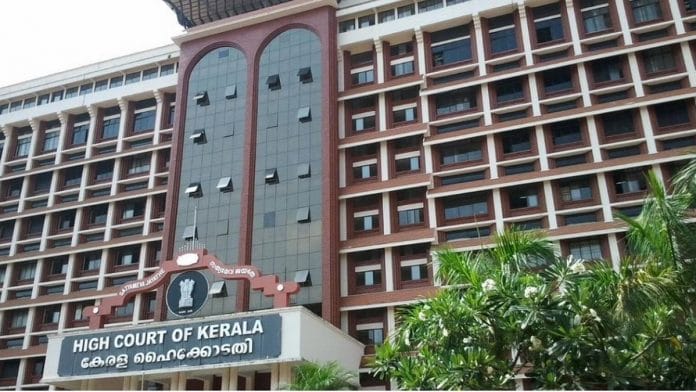New Delhi: A child’s genital reconstruction surgery without their consent would be an infringement of a minor’s right to privacy, the Kerala High Court has ruled.
The court made the remark on 7 August as it disposed of a writ petition filed by a couple seeking permission to conduct genital reconstructive surgery on their 7-year-old child, whom they seek to raise as a girl.
The parents argued that the child was undergoing treatment for ‘Congenital Adrenal Hyperplasia’ — a group of genetic disorders that may manifest as ambiguous external genitalia — and had been advised by medical practitioners to undergo the surgery. However, the doctors, they said, had refused to operate on the child without a court order.
The high court quoted a 2022 Delhi High Court judgment where the Centre was directed to take a decision about sex reconstruction surgery on infants, strictly on the basis of the recommendations of the Delhi Commission for the Protection of Child Rights.
In the case at hand, the parents raised a two-fold argument.
They said the surgery was imperative at this stage as the child had started to develop certain distinctive features due to physical growth. The child, they said, had a uterus, ovaries and an oversized clitoris.
Secondly, the parents feared possible social ostracisation of their child and family. They said, as parents, they were best suited to decide the future of the child, considering the trauma and hardship they might face in the future.
However, a bench of Justice V.G. Arun — highlighting the primacy of the rights of the child guaranteed under the Constitution over the consent of the parents — quoted the Right to Privacy judgment of the Supreme Court to hold that allowing the surgery would lead to a gross violation of the child’s dignity and privacy.
It would violate the rights of the child guaranteed under Articles 14, 19 and 21 of the Constitution of India — which pertain to equality before the law, freedom of speech and expression, and protection of life and personal liberty — he added.
“Granting such permission may also result in severe emotional and psychological issues if, on attaining adolescence, the child develops orientation towards the gender, other than the one to which the child was converted through surgical intervention,” he added.
The court premised its judgment on the report for the child’s karyotype test — a genetic test that analyses chromosomes — which didn’t unequivocally rule out the possibility that the child may develop male-like tendencies in the future.
Also Read: ‘Should I’ve done it?’ Kerala trans groups anxious after botched-up sex surgeries, suicides
Committee to be set up
The high court also directed the government to form a state-level multidisciplinary committee of experts to examine the child for two months and decide whether they are facing any life-threatening situation on account of the ambiguous genitalia.
It noted that permission for the surgery can be granted in an extreme situation. The committee would consist of a paediatrician/paediatric endocrinologist, paediatric surgeon and child psychiatrist/child psychologist.
In the same breath, the court directed the government to issue an order regarding regulations for sex-selective surgery on infants and children within three months. Until then, it said, sex-selective surgeries shall be done on the basis of the opinion of the committee, only if it is essential to save the life of the child.
At the end of the order, the bench mentioned the poem “I’m Fluid” by Sarah Crouse in a bid to explain the intersex psyche.
“My gender is mine
you will not correct it
you will not make me feel like a misfit
because I know who I am, what I am
there is no right answer to this exam
my gender is fluid.”
Harkirt Singh Anand is a second-year law student with Jindal Law School and is currently interning with ThePrint
(Edited by Sunanda Ranjan)
Also Read: In further crackdown on LGBTQ rights, Russia votes for law to ban gender reassignment surgery






